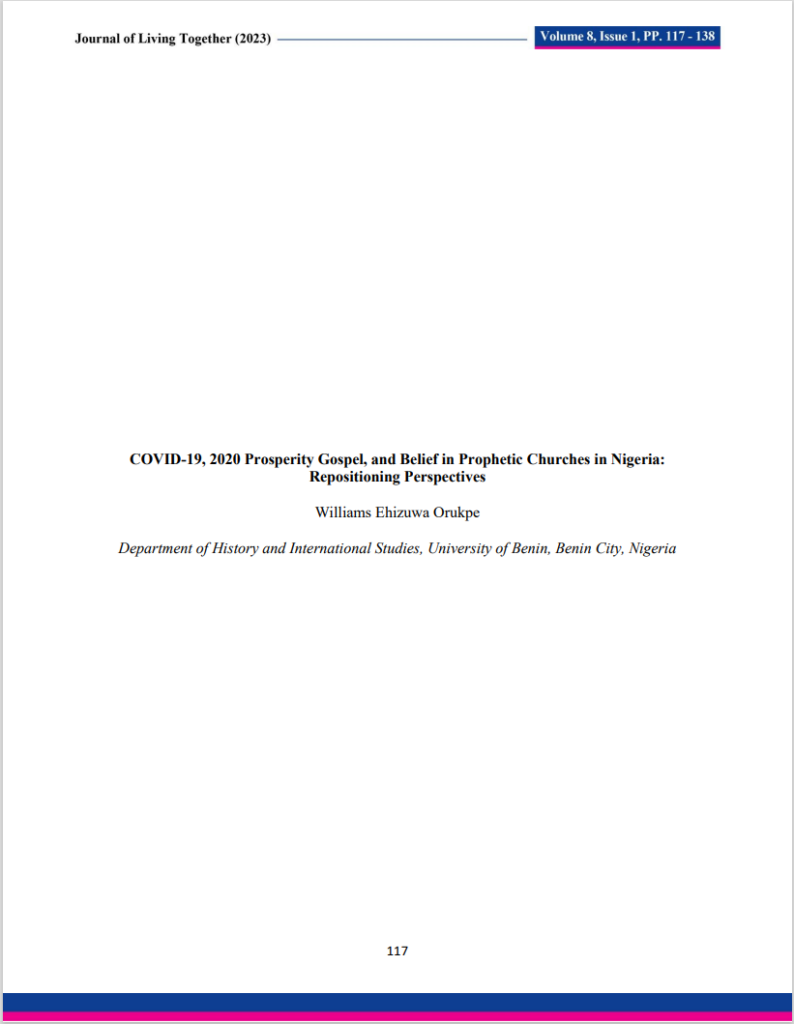Tolerance of “Others” and Intolerance to “Disorders” as Impetus for Peace and Dialogue in Multi-Faith Nigeria
Abstract:
The focus of this article is on specific and salient religious concerns which have caused division among adherents of the three major faiths in Nigeria. The views of scholars on tolerance and intolerance to these concerns differ greatly and sometimes generate heated argument due to the religious, cultural and spiritual dimensions associated with them. This article categorises these concerns as “others” and “disorders” and evaluates the need for tolerance and intolerance to them correspondingly, as this can serve as an impetus for peace and dialogue in the pluralistic Nigerian society. The concepts of tolerance, religious tolerance and tolerance of others are discussed from the perspective of African Traditional Religion (ATR), Christianity and Islam. Also, areas of relationship, interaction, and activities, where tolerance should be displayed by adherents of the three major religions in Nigeria are examined. Furthermore, the disorders that should not be tolerated with examples and how they have caused hatred, discrimination and religious crisis in multi-faith Nigeria are analysed. The article concludes that tolerance of “others” and intolerance to “disorders” will help to mitigate religious differences and its attendant crises and promote peaceful relations and dialogue.
Read or download full paper:
Journal of Living Together, 2-3 (1), pp. 61-75, 2016, ISSN: 2373-6615 (Print); 2373-6631 (Online).
@Article{Mala2016
Title = {Tolerance of “Others” and Intolerance to “Disorders” as Impetus for Peace and Dialogue in Multi-Faith Nigeria}
Author = {Simon Babs Mala},
Url = {https://icermediation.org/peace-and-dialogue-in-nigeria/}
ISSN = {2373-6615 (Print); 2373-6631 (Online)}
Year = {2016}
Date = {2016-12-18}
IssueTitle = {Faith Based Conflict Resolution: Exploring the Shared Values in the Abrahamic Religious Traditions}
Journal = {Journal of Living Together}
Volume = {2-3}
Number = {1}
Pages = {61-75}
Publisher = {International Center for Ethno-Religious Mediation}
Address = {Mount Vernon, New York}
Edition = {2016}.



